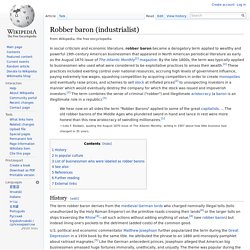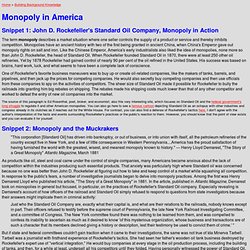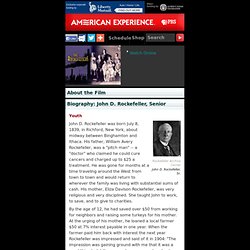

Robber baron (industrialist) In social criticism and economic literature, robber baron became a derogatory term applied to wealthy and powerful 19th-century American businessmen that appeared in North American periodical literature as early as the August 1870 issue of The Atlantic Monthly[1] magazine.

By the late 1800s, the term was typically applied to businessmen who used what were considered to be exploitative practices to amass their wealth.[2] These practices included exerting control over national resources, accruing high levels of government influence, paying extremely low wages, squashing competition by acquiring competitors in order to create monopolies and eventually raise prices, and schemes to sell stock at inflated prices[2] to unsuspecting investors in a manner which would eventually destroy the company for which the stock was issued and impoverish investors.[2] The term combines the sense of criminal ("robber") and illegitimate aristocracy (a baron is an illegitimate role in a republic).[3]
Monopoly in America. Home > Building Background Knowledge Snippet 1: John D.

Rockefeller's Standard Oil Company, Monopoly in Action The term monopoly describes a market situation where one seller controls the supply of a product or service and thereby inhibits competition. Monopolies have an ancient history with two of the first being granted in ancient China, when China's Emperor gave out monopoly rights on salt and iron. Like the Chinese Emperor, America's early industrialists also liked the idea of monopolies, none more so than John D. American Experience. Youth Rockefeller Archive Center John D.

Rockefeller, Sr. John D. John D. Rockefeller.